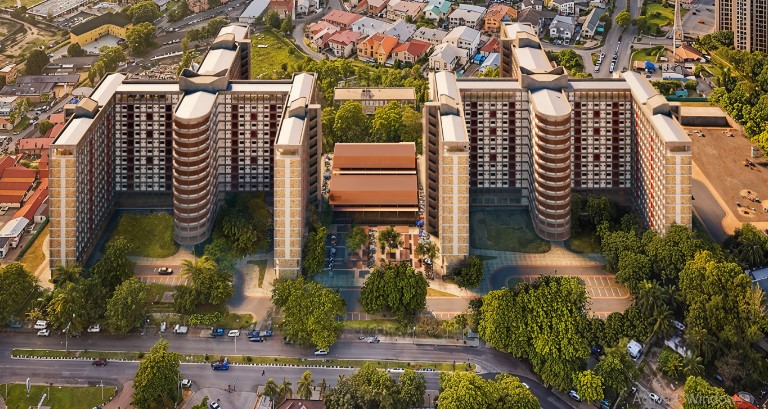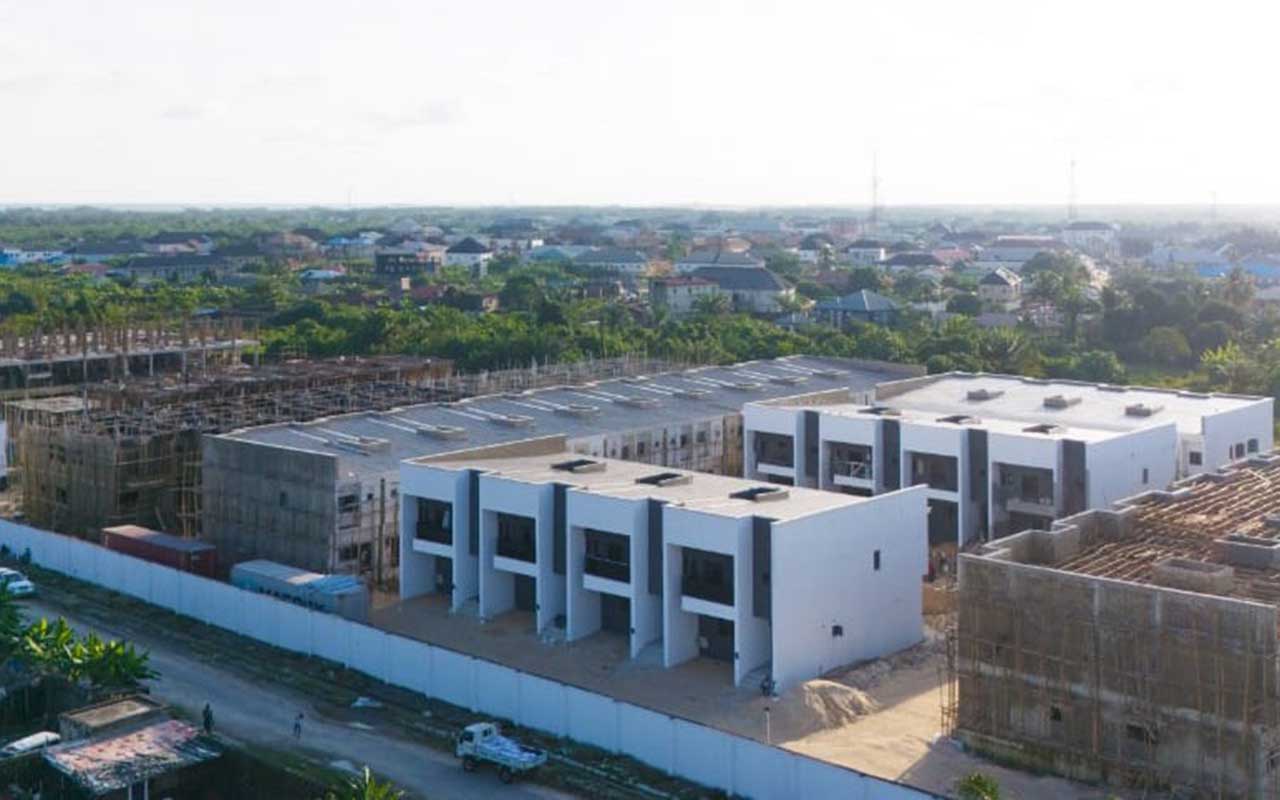Amid Nigeria’s deepening housing crisis, a coalition of architects, urban planners, and social activists have urged the transformation of the long-abandoned Ikoyi Federal Secretariat into a vibrant social housing complex.
They argue that repurposing the derelict landmark could breathe life into idle public assets while addressing Lagos’ growing need for affordable homes. The 12-storey secretariat complex, once a symbol of post-independence bureaucratic ambition, has stood idle, while millions struggle to find affordable homes.
The activists argue that redeveloping the secretariat into mixed-income social housing would not only preserve its architectural heritage but also stimulate economic activity in Ikoyi.
Their proposal includes converting office floors into compact, energy-efficient apartments, integrating communal spaces, and incorporating retail and service outlets on the lower levels.
Despite the potential, legal disputes, ownership ambiguities, and bureaucratic bottlenecks have stalled previous plans for the building. In 2006, an attempt to privatise and redevelop the secretariat met stiff resistance from civil society groups over fears of exclusionary and luxury-focused redevelopment.
To underscore their plans, the coalition launched a design competition, where five teams – TIWA N TIWA, Open City Ikoyi, ECO Cultural Towers, Resident Con Shelter, and Oasis – proposed bold models for transforming the Ikoyi Secretariat and similar abandoned structures into vibrant, community-owned housing and cultural hubs.
The event was organised by Heinrich Boll Foundation Abuja (hbs), Rethinking Cities Initiative (RCI), Goethe Institut, Fabulous Urban Nigeria Foundation and Arctic Infrastructure under the theme, “From Vacant to Vibrant: Transforming Abandoned Buildings into Spaces for Vibrant Low-Income Housing” in Lagos.
The TIWA N TIWA team emerged with the winning proposal that draws inspiration from the resilience and ingenuity of Lagos’ vast informal settlements. Their vision is grounded in the realities of the urban poor, who comprise the majority of Lagosians and are often excluded from the city’s formal housing markets.
By repurposing the secretariat as a community-owned, sustainable housing complex, TIWA N TIWA advocated for democratised housing, where residents collectively own, operate, and maintain their homes through cooperatives.
The design goes beyond shelter, integrating urban farming, recreation, and commercial spaces to foster a holistic, dignified living environment.
The TIWA N TIWA team, comprising Adeniran Mofoluwake, Ololade Talabi, and Adegunloye Abolarinwa, emphasised incremental self-help that allows residents to expand their units as needs and incomes grow, while embedding green infrastructure such as solar panels, greywater systems, and vertical gardens.
Their model is striking for its inclusivity and scalability, offering a framework that could be replicated across Lagos and beyond, and echoing global trends in adaptive reuse and participatory urbanism highlighted by the World Bank and UN-Habitat.
The design draws from existing informal structures that have long sustained these communities through adversity by embracing their adaptability and ingenuity. TIWA N TIWA proposes the transformation of the Federal Secretariat into a vibrant, mixed-use residential complex that reflects the lived experiences and aspirations of its residents.
“This is not just a housing solution; it is a framework for self-sustaining urban living. We envision a development that goes beyond shelter to provide food, income, education, and community. Through an internal economy supported by plastic recycling, vertical farming, shared services, and learning opportunities, residents become stakeholders in both the use and upkeep of the building,” the team added.






